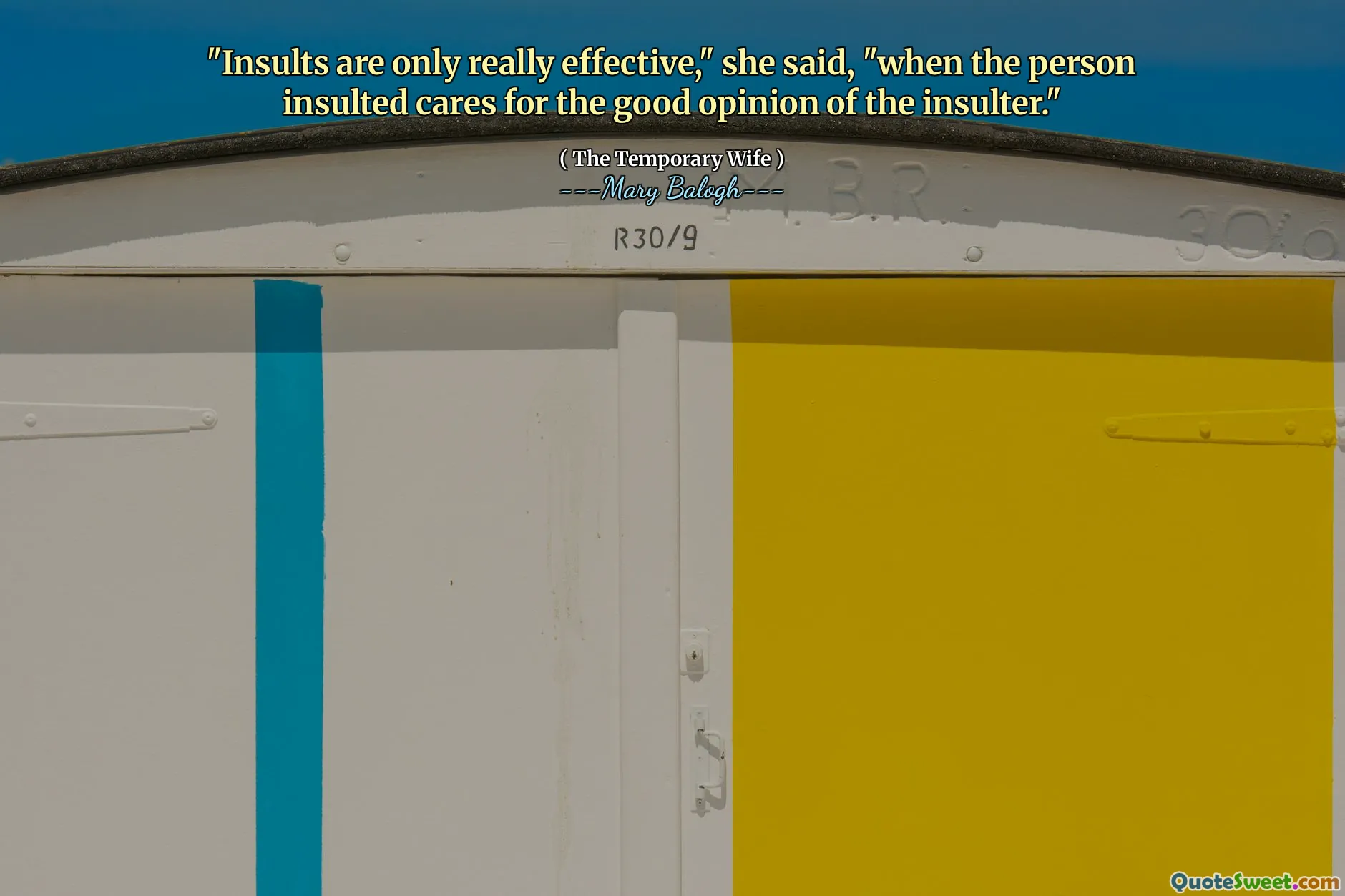
"Insults are only really effective," she said, "when the person insulted cares for the good opinion of the insulter."
This quote insightfully reveals a subtle truth about the dynamics of insults and emotional impact. It suggests that the sting of an insult is not inherent in the insult itself but largely depends on the relationship and perceived value we place on the opinion of the person who delivers it. When someone we respect or care about criticizes us, the effect is more profound because their opinion matters to us. Conversely, if the person insulting us holds no significance in our lives, the insult loses its power and fails to hurt us deeply.
Reflecting on this, it encourages a deeper understanding of self-worth and emotional resilience. It subtly calls attention to where our emotional vulnerability lies—often in the regard we have for others’ views about us. By recognizing this, we might work to protect ourselves emotionally by building stronger self-esteem and assessing whose opinions truly deserve our concern. It also challenges us to question the value we place on external validation versus our own internal compass.
Moreover, the quote underscores the psychological interplay in human relationships—the power dynamics, respect, and emotional influence that entwine human interactions. It invites us to be mindful of both how we perceive insults and how we may unintentionally give others power over our emotions. In this way, it offers a route not just for understanding insults but also for fostering healthier emotional boundaries and a more resilient self.






